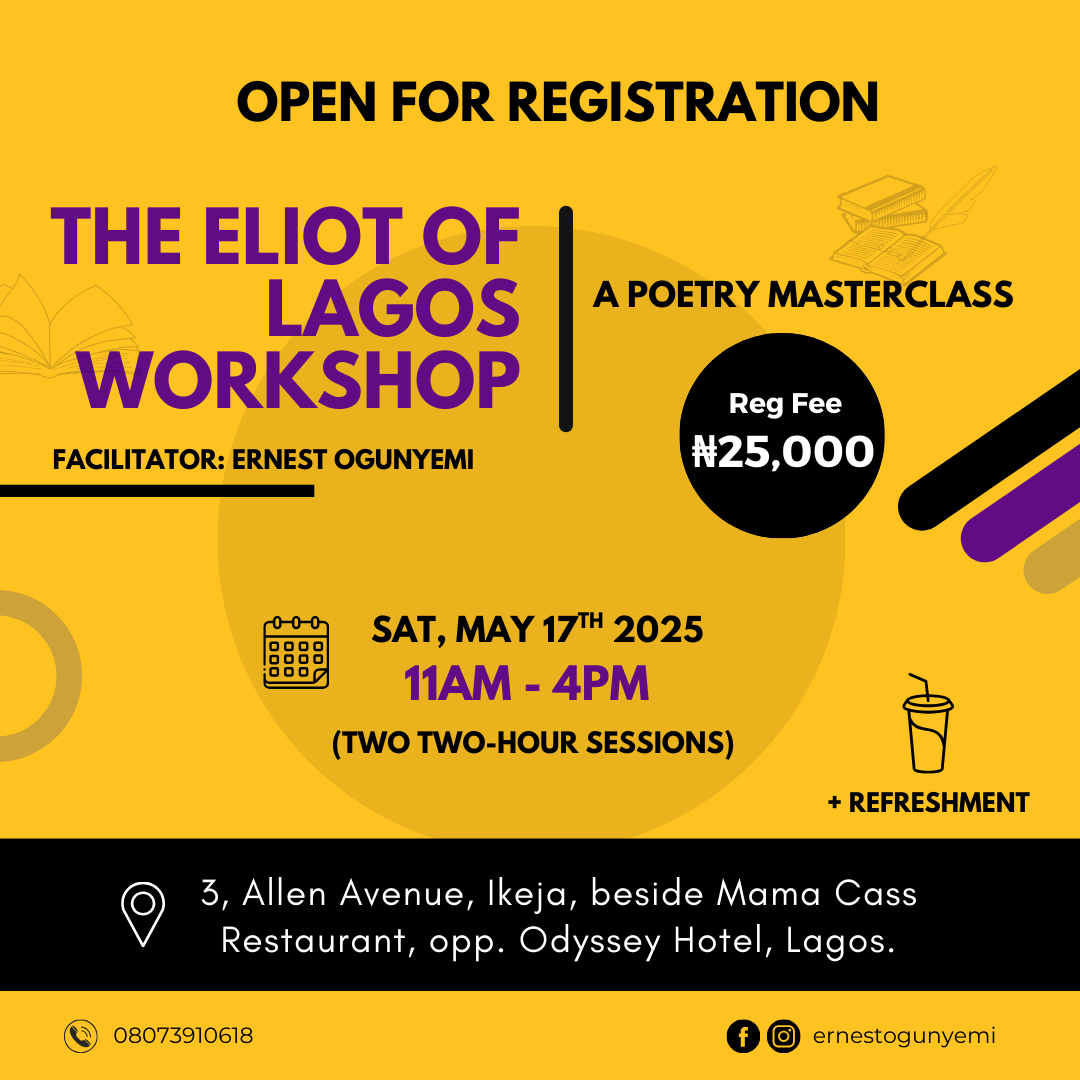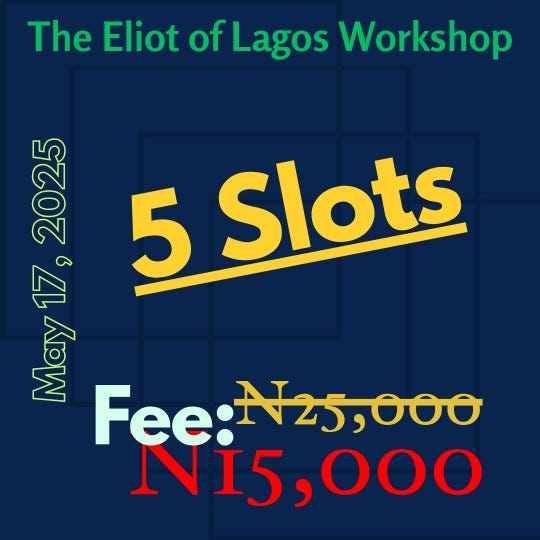*The details on the workshop are at the bottom of this post.
A few weeks ago, I published a piece here about value and vested interests. Up until very recently—and I am not sure that I can declare myself completely free—I read literature with interests. My interests were not always ideological or political. They were “natural” interests. I did not go to a book with a desire to find my beliefs consolidated. Instead, I always wanted to find something I could use, something I could—here is the word—relate to—something in a poem or a story that coincided with some aspect of my life.
The bits from a collection that I am able to relate to (relate to, not in the sense of confessional poetry but of something deeper, though still shallow) served as footholds for me. They would keep me going. Like little jokes told every fifteen minutes—in a two-hour long lecture—to keep the audience from dozing off. They served as incentives.
“Keats allows more agency to the poem as a thing in itself; Emerson fails to recognize the agency that a work of genius possesses.”
For instance, in February, I was reading Keats’s “Endymion”—a long poem. I was going through heartache at the same time. “Endymion” is a love poem and parts of it felt to me like providence, because they fitted so well with what was taking place in my life—a certain longing, a pining for some love. I remember reading parts of the poem to a friend and writing down the title for an essay, “Poetry’s providence.”
In a letter of Keats’s (dated February 27, 1818), he wrote: “In poetry I have a few axioms . . . 1st I think Poetry should surprise by a fine excess and not by Singularity—it should strike the reader as a wording of his own highest thoughts, and appear almost a Remembrance.”
It is possible to think that Keats is saying that the reader should be able to find a foothold for his life in a fine poem. But that would be a misreading. The total axiom goes against, even though it accommodates a form, of that idea. The idea that poetry should surprise not by singularity means that the effectiveness of a poem is not in the aspect that makes us want to snap our fingers or say, “Yes! Yes! Yes!” (This is a good reason why spoken word is not poetry: it is about (often cheap) singularities—punchlines.) Instead, it should “surprise by a fine excess.” If, in reading, one focuses on the aspects, as I used to do, one loses sight of the abundance that is thronging there. Note that he also says “appear almost a Remembrance”—not “appear as a remembrance.” (See “A Note on Great Poetry” by Charles Williams for a discussion that does not mention but elaborates on the axiom.)
A similar kind of note was one that Geoffrey Hill really went in on Ralph Waldo Emerson for in “Alienated Majesty.” “In every work of genius we recognize our own rejected thoughts: they come back to us with a certain alienated majesty,” Emerson wrote.
The quote from Emerson may sound (as it did to me until I began to contemplate it seriously) similar to Keats’s—if we decide to substitute “work of genius” for “poetry” and we take “recognize” in Emerson as “strike the reader,” and we interchange Keats’s “highest thoughts” with Emerson’s great phrase “alienated majesty,” one could argue for it.
“That is expressiveness right there, a recognition not of self but of something other than self.”
But are they in fact saying the same thing?
No. They don’t. Emerson, for one, is too direct and too sure, his genius has been held in check so that it cannot check the statement as Keats’s genius does by embedding that “almost” before “a Remembrance.” Keats’s phrasing is generally more nimble, more intuitive, and more fertile than the American philosopher’s. Keats says the poem should “strike the reader”; Emerson says the reader should “recognize.” Finally, Emerson’s “rejected thoughts” is so far from Endymion’s “his own highest thoughts.”
In short, Keats allows more agency to the poem as a thing in itself; Emerson fails to recognize the agency that a work of genius possesses.
Why have I made reference to these passages?
I have been aware for a while now that I am not interested in making poems that people can relate to; poems that feel familiar. “I am interested in expressiveness, not self-expression.” It is when two selves communicate (selves taken as shells rather than beings) that they say, “Me too! Me too!” When two original beings meet, it is not—“Me too! Me too!”—that they say. They are either too stunned to speak or their speaking takes on a nonverbal life. (When speech is used to pursue something beyond speaking, that is expressiveness.) When Adam saw Eve—an original being seeing another original—here is what he says: “This now is bone of my bones, and flesh of my flesh. She shall be called woman, because she was taken out of the man. Therefore shall a man leave his father and his mother, and shall cleave to his wife, and they shall be one flesh.”
“The sort of poem about which the only question fit to be asked is: ‘What is its name? What shall we call it?’”
That is expressiveness right there, a recognition not of self but of something other than self, of a being like his own being but entirely different from his own being, so “She shall be called woman.” And the cognition of this “being” necessitates a departure—a departure that is an act of transcendent imagining, since Adam who talks about a man leaving his father and mother does not yet have a son and himself has no mom or dad. That is how expressiveness works—it unfolds realms previously unknown or locked away.
Another place where we see two original beings interacting is when Jacob wrestles the Angel and says, “What is your name?” Like Adam, he needed something to call the Angel. He could not call it by his own name—he could not “relate” to the Angel; that would not do. He had to wrestle God. And in wrestling it was Jacob’s own name that was changed.
I want to quote Ammons, but that would take me in another direction. I was saying that I have known for a while that I do not want to make poems that people can relate to, but the sort of poem about which the only question fit to be asked is: “What is its name? What shall we call it?” The only answer being a wrestle, one that changes the one who wrestles.
But, even though I had known that about my work, I had not applied that notion of impersonality to how I read. Until I read Hill’s Alienated Majesty. Then it became clear to me that I had been focusing on singularities and that, in focusing on those, I was not getting the best out of the whole. Now I read not to find things that tickle my fancy; I read to comprehend the whole. I read (endeavor to; am learning to) with an alert critical ear and an indifferent self.
Do I find things that excite me? Yes, I do; but I don’t dwell on them. And, I have to tell you, it is a more rewarding way to read. Last night, I went back and reread the short-short essays in A. R. Ammons’s Set in Motion, and it was like I had never read them before. The essays became so clear, I could see into and through them. I went and read parts of Sphere and I could see the shades better: what worked and what seemed superfluous and what was truly arresting. I dipped into David Jones’s In Parenthesis—a book T. S. Eliot considered a work of genius and which is; but I saw, too, that much was unalive in it.
Thank God for works that we encounter that change our name; that inflect how it’s said.
“Workshop Details”
I have some good news. This is for those who would like to attend the workshop in May but are not able to afford the fee. Due to the generosity of a reader of the newsletter, the fee has been subsidized for a few people. There are five slots available—at N15000 instead of the regular N25000. Once the slots are filled, others would have to pay the regular fee. Please reach out as soon as you can. I look forward to seeing you this May and taking delight in phrases like “surprise by a fine excess” or “I am interested in expressiveness” with you.
Send an email to ogunyemiernest@gmail.com.
If you are interested in reading about the workshop, please follow this link. Sponsorships are welcome.
I hope you are having a great time, now that the cruelest month has left us. I am sending you all the best wishes. I assure you, Idán—every good thing will come.🔹
“I am interested in expressiveness, not self-expression.”



♥️